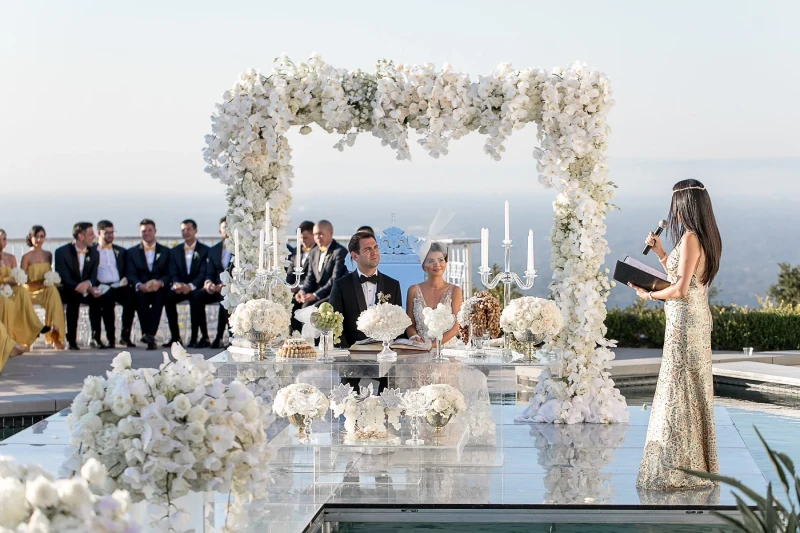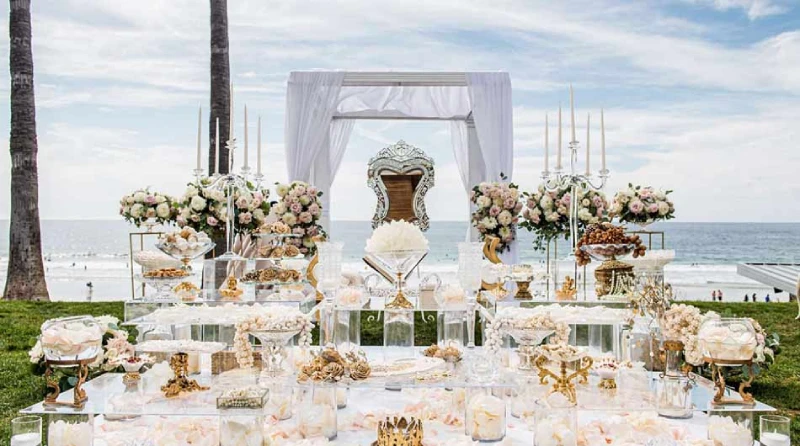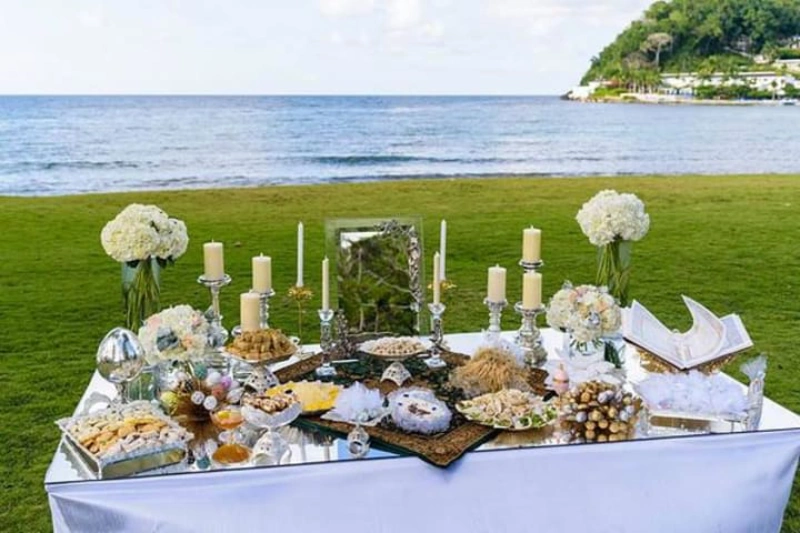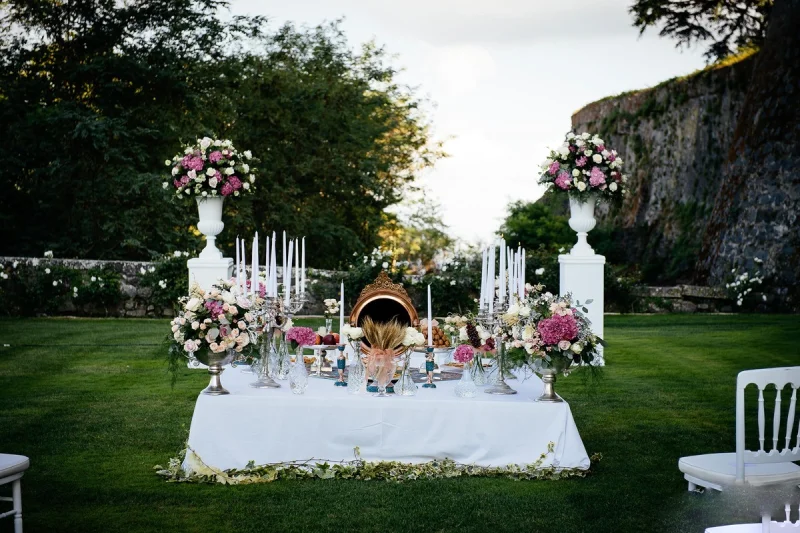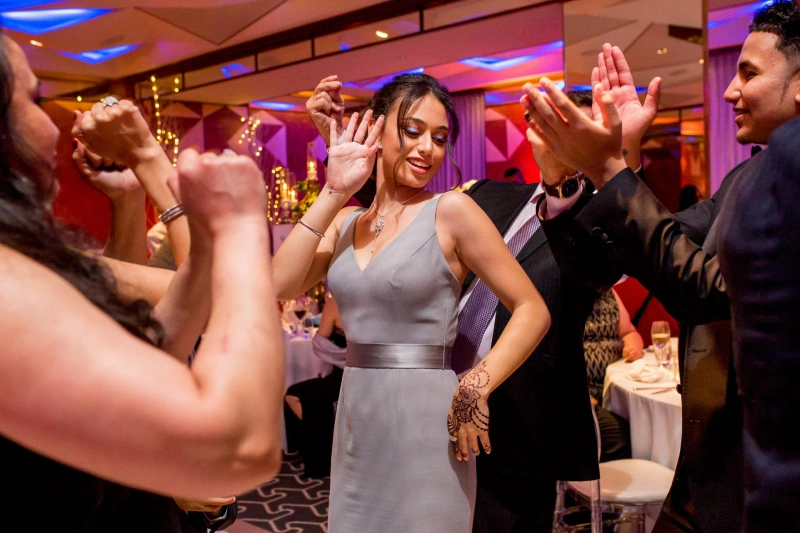Choosing the perfect venue for a Persian wedding outside Iran is more than just finding a beautiful space; it’s about creating an atmosphere that reflects the rich traditions and vibrant culture of Persian heritage. Whether you envision an opulent banquet hall adorned with intricate designs or a serene outdoor garden that captures the essence of your love story, the choices are endless. The right venue will serve as the backdrop for unforgettable memories—where joyous dances shake the ground and heartfelt speeches resonate through the air. From selecting a location that accommodates traditional ceremonies to ensuring authentic catering that delights your guests, every detail matters. Join us as we explore essential tips and insights to help you navigate this exciting journey, turning your dream wedding into a breathtaking reality that celebrates both your love and your culture. Let’s dive into the world of Persian wedding venues that will enchant you and your guests alike!
Understanding the Significance of Venue in Persian Weddings
Persian weddings are renowned for their grandeur and cultural richness, and the venue plays a pivotal role in setting the stage for these celebrations. It’s not just about finding a picturesque location; the venue embodies the essence of Persian heritage and traditions, acting as a canvas where the bride and groom can paint their love story. The significance of the venue is multifaceted, intertwining aesthetics, functionality, and cultural resonance to create a truly memorable experience.
The history of Persian weddings is steeped in opulence, with ceremonies often taking place in lavish palaces and gardens adorned with intricate designs and vibrant colors. Emulating this sense of grandeur outside Iran requires a venue that can capture the spirit of these traditional settings. Whether it’s through architectural elements, decor, or ambiance, the venue should reflect the elegance and sophistication that are hallmarks of Persian weddings.
Moreover, the venue is where all the key moments of the wedding unfold—from the intimate exchange of vows to the exuberant celebrations that follow. It’s a space that will host a blend of emotional highs, joyous dances, and heartfelt speeches, making it crucial to choose a venue that can accommodate and enhance these experiences. The right venue will seamlessly blend functionality with beauty, ensuring that every moment is both comfortable and captivating for the couple and their guests.
Key Factors to Consider When Choosing a Wedding Venue
When selecting a wedding venue, there are several key factors to consider to ensure it aligns with your vision and needs. Firstly, the size and capacity of the venue are paramount. Persian weddings often have large guest lists, so it’s essential to choose a venue that can comfortably accommodate everyone. Consider the seating arrangements, dance floor space, and areas for ceremonial activities to ensure your guests have ample room to enjoy the festivities.
Another crucial factor is the location of the venue. It should be easily accessible for guests traveling from different areas and ideally situated in a picturesque or culturally significant setting. Proximity to accommodations and transportation hubs will also enhance the convenience for guests, ensuring they can arrive at the venue without hassle.
The aesthetic appeal of the venue is equally important. Persian weddings are known for their visual splendor, so choose a venue that offers a beautiful backdrop for your celebration. Whether it’s an elegant ballroom, a charming garden, or a historic estate, the venue should complement the theme and style of your wedding. Additionally, assess the venue’s flexibility in terms of decor and customization options to make sure you can incorporate traditional Persian elements and personal touches.
Popular Venue Types for Persian Weddings
There are several types of venues that are particularly well-suited for Persian weddings, each offering unique advantages and ambiance. One popular option is a luxury banquet hall. These venues often feature opulent interiors with chandeliers, marble floors, and detailed moldings that can evoke the grandeur of Persian palaces. Banquet halls are also equipped to handle large guest counts and provide comprehensive services, including catering and event coordination.
Outdoor garden venues are another excellent choice for Persian weddings. Gardens can capture the natural beauty and serenity that are often celebrated in Persian culture. Look for venues with lush greenery, blooming flowers, and water features that can create a romantic and tranquil atmosphere. These spaces are ideal for traditional ceremonies like the Sofreh Aghd, which can be beautifully integrated into the natural surroundings.
Historic estates or mansions offer a blend of elegance and charm that can enhance the cultural richness of a Persian wedding. These venues often have unique architectural features and expansive grounds that provide a stunning backdrop for both the ceremony and reception. The historical significance of these locations can add an extra layer of meaning to your wedding, making it a truly unforgettable event.
Cultural Elements to Incorporate in Your Venue Selection
Incorporating cultural elements into your venue selection is essential for creating an authentic Persian wedding experience. One way to do this is by choosing a venue that allows for traditional Persian wedding rituals and ceremonies. The Sofreh Aghd, for example, is a critical part of the wedding, involving a beautifully arranged spread of symbolic items. Ensure the venue has a suitable space for this setup, whether indoors or outdoors.
Another cultural element to consider is the decor. Persian weddings are often adorned with intricate designs, vibrant colors, and luxurious materials. When selecting a venue, look for spaces that can accommodate elaborate decorations such as Persian carpets, floral arrangements, and ornate table settings. Some venues may even offer decor packages that include traditional Persian elements, making it easier to achieve the desired look.
Music and dance are integral parts of Persian wedding celebrations, so the venue should have facilities that support these activities. This includes a spacious dance floor, quality sound systems, and areas for live performances. Traditional Persian music and dance can add a lively and joyous atmosphere to the wedding, so it’s important that the venue can accommodate these cultural expressions.
How to Assess Venue Capacity and Layout
Assessing the capacity and layout of a venue is crucial to ensure it meets your needs and provides a comfortable experience for your guests. Start by determining the maximum capacity of the venue and compare it with your guest list. This will help you avoid overcrowding and ensure there is enough space for everyone to enjoy the event. Consider the seating arrangements and whether the venue offers flexibility in configuring the space to accommodate different activities.
The layout of the venue is equally important. Analyze the flow of the space to ensure it allows for smooth transitions between different parts of the wedding, such as the ceremony, cocktail hour, and reception. Look for venues with separate areas for each phase of the event, including designated spaces for the Sofreh Aghd, dining, dancing, and socializing. This will help maintain an organized and cohesive experience.
Accessibility within the venue is another key factor. Ensure there are adequate facilities for guests with mobility issues, including ramps, elevators, and accessible restrooms. Additionally, consider the convenience of parking and transportation options for guests. A well-laid-out venue will enhance the overall experience, making it easier for guests to move around and fully enjoy the celebration.
Budgeting for Your Venue: Costs and Hidden Fees
Budgeting for your wedding venue involves more than just the initial rental cost; there are often hidden fees that can impact your overall budget. Start by obtaining a detailed breakdown of the venue’s pricing structure. This should include the base rental fee, as well as any additional charges for services such as catering, decor, and event coordination. Understanding these costs upfront will help you plan your budget more accurately.
Be aware of potential hidden fees that may arise. These can include overtime charges if the event runs longer than planned, cleaning fees, and service charges for staff. Some venues may also have fees for using certain facilities or equipment, such as audio-visual systems, lighting, and furniture rentals. It’s essential to ask about these fees during your initial discussions with the venue to avoid any surprises.
Consider the overall value of what the venue offers. While some venues may have higher upfront costs, they might include comprehensive packages that cover various aspects of the wedding, such as decor, catering, and coordination. This can simplify the planning process and potentially save you money in the long run. Compare different venues to see which offers the best combination of services, quality, and price.
Location, Accessibility, and Accommodations for Guests
The location of your wedding venue is a critical factor that can impact the convenience and enjoyment of your guests. Choose a venue that is easily accessible from major transportation hubs, such as airports and train stations. This will make it easier for guests traveling from different areas to reach the venue without hassle. Additionally, consider the availability of parking and public transportation options near the venue.
Accommodations for guests are another important consideration. If many of your guests are traveling from far distances, look for venues that are close to hotels or have on-site accommodations. This will enhance the convenience for your guests, allowing them to stay nearby and avoid long commutes. Some venues may even offer special rates or packages with local hotels, making it easier to coordinate accommodations.
The surrounding area of the venue can also add to the overall experience. Choose a location that offers scenic views, cultural attractions, or recreational activities for guests to enjoy before and after the wedding. This can turn your wedding into a mini-vacation for your guests, giving them the opportunity to explore and enjoy the destination. A well-chosen location will enhance the overall experience and leave a lasting impression on your guests.
Tips for Venue Tours and Assessments
Conducting venue tours and assessments is a crucial step in the selection process. Start by scheduling visits to several potential venues to get a firsthand look at the spaces. During the tours, pay attention to the overall ambiance and aesthetic appeal of the venue. Consider how well it aligns with your vision for the wedding and whether it can accommodate your desired decor and setup.
Assess the practical aspects of the venue during your visit. Check the condition of the facilities, including restrooms, kitchens, and dressing rooms. Ensure they are clean, well-maintained, and equipped to handle your event. Evaluate the layout and flow of the space to see if it allows for smooth transitions between different parts of the wedding.
Ask detailed questions during your tour to gather information about the venue’s policies and services. Inquire about the availability of staff, security, and coordination services on the day of the event. Clarify any restrictions or regulations related to decor, catering, and entertainment. Gathering this information will help you make an informed decision and choose a venue that meets all your needs.
Working with Wedding Planners and Venue Coordinators
Collaborating with wedding planners and venue coordinators can significantly simplify the planning process and ensure a seamless execution of your event. Wedding planners bring expertise and experience, helping you navigate the myriad details involved in organizing a Persian wedding. They can assist with venue selection, decor, catering, and coordination, ensuring that everything aligns with your vision.
Venue coordinators are also invaluable resources. They have in-depth knowledge of the venue’s facilities, policies, and services, and can provide guidance on how to best utilize the space. Coordinators can help with logistics, including setup, timing, and troubleshooting, ensuring that the event runs smoothly. Their familiarity with the venue can streamline the planning process and enhance the overall experience.
Effective communication with planners and coordinators is essential. Clearly convey your vision, preferences, and priorities to ensure they understand your expectations. Regular meetings and updates will keep everyone on the same page and allow for adjustments as needed. By working closely with these professionals, you can alleviate stress and focus on enjoying your special day.
Finalizing Your Venue: Contracts and Agreements
Finalizing your wedding venue involves signing contracts and agreements that outline the terms and conditions of the rental. Before signing, carefully review the contract to ensure it includes all the details you discussed with the venue. This should cover the rental fee, services provided, payment schedule, and any additional charges. Clarify any uncertainties and negotiate terms if necessary.
Pay attention to the cancellation and refund policies in the contract. Understand the conditions under which you can cancel the booking and the penalties involved. This will protect you in case of unforeseen circumstances that require changes to your plans. Additionally, check the terms related to changes in guest count, event timing, and services to ensure flexibility.
Once the contract is signed, maintain clear communication with the venue to ensure all arrangements are on track. Confirm details such as setup times, staff availability, and coordination services. Keep copies of all agreements and correspondence for reference. By finalizing these details, you can secure your venue and move forward with confidence, knowing that the foundation of your wedding is firmly in place.
Choosing the perfect venue for a Persian wedding outside Iran is a multifaceted process that requires careful consideration and planning. By understanding the significance of the venue, assessing key factors, and incorporating cultural elements, you can create an unforgettable celebration that reflects your heritage and love story. With the right venue, your Persian wedding will be a breathtaking reality that enchants both you and your guests.

